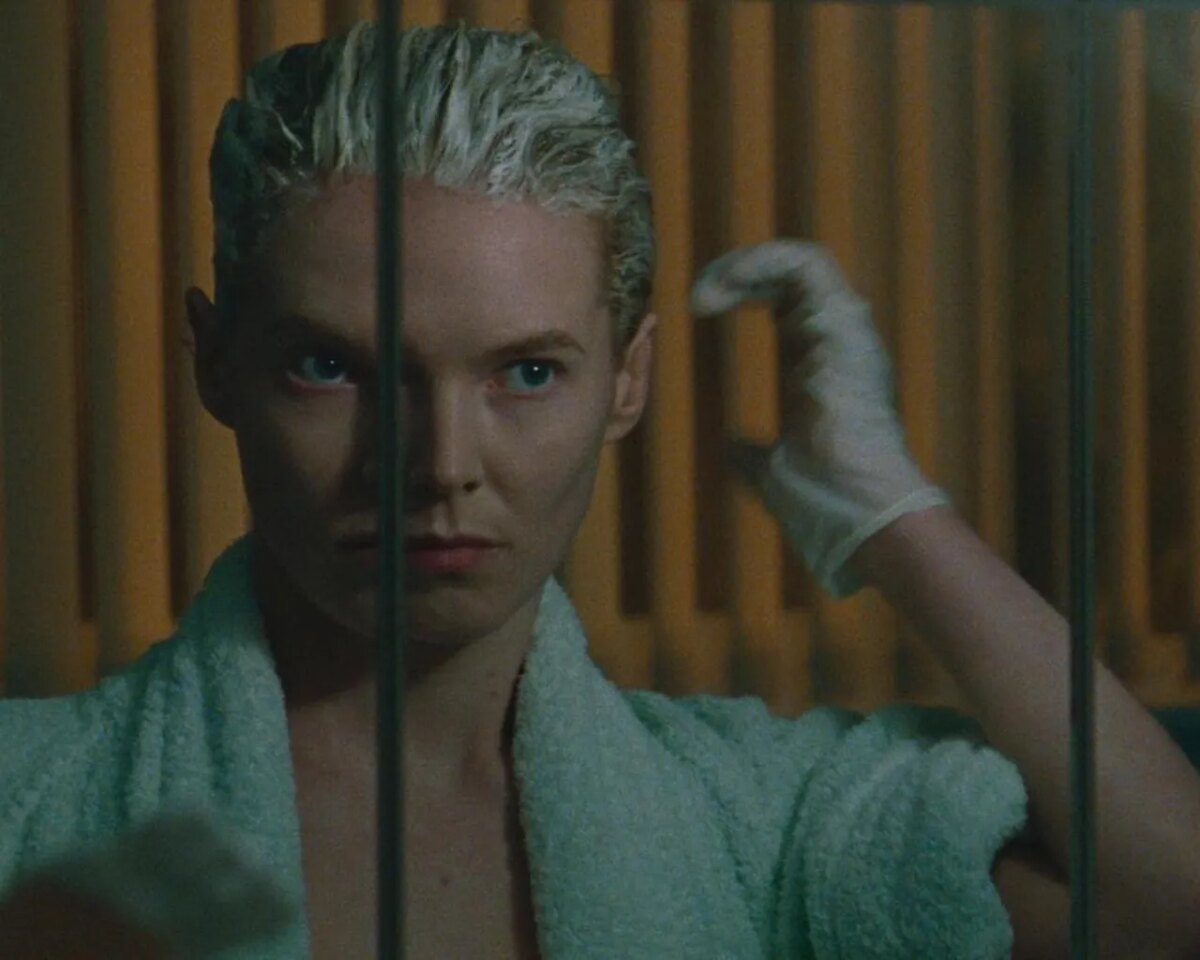
A high school gym teacher grappling with her sexual identity is challenged on both a micro and macro level in 1988 England in “ Blue Jean,” a quietly complex portrait of compartmentalization and self-actualization.
In October 1987, British Prime Minister Margaret Thatcher gave a speech in which she bemoaned the state of education and said that “Children who need to be taught to respect traditional moral values are being taught that they have an inalienable right to be gay.” This was just part of her critique of the state of education and the agenda of “extremist teachers” pushing “political slogans” and “anti-racist mathematics” who are cheating children out of a “sound start in life.” By May of 1988, a law was passed (Section 28) that would “prohibit the promotion of homosexuality” and would remain in effect in some form until 2003. Don’t worry if the law doesn’t sound familiar either – it was news to both the film’s director and star.
The film, which opens in limited release Friday, is the assured directorial debut of Georgia Oakley, who focuses her script not on the women who went out to protest as the House of Lords debated Section 28, but on one who was still coming to terms with her own identity. Jean (Rosy McEwen) is not terribly political, and, like most teachers, keeps her private life to herself. But she’s also one whose livelihood and passion (teaching) would be directly threatened by the law. Her journey in the film is a human one – there are mistakes, deep regrets, and casualties – and it’s her flaws that make her relatable. She is not, in other words, exactly an inspirational hero.
England, 1988 – Margaret Thatcher’s Conservative government are about to pass a law stigmatising gays and lesbians, forcing Jean, a PE teacher, to live a double life. As pressure mounts from all sides, the arrival of a new girl at school catalyses a crisis that will challenge Jean to her core.
At the beginning, Jean leads a quiet life. She lives alone in an apartment and commutes to teach gym to high schoolers and coach the girls’ netball team. She loves her work and takes it seriously but keeps a distance from both the students and her fellow teachers, eating alone at lunch and declining persistent requests to go out for a pint after work. Some nights she meets up with her girlfriend, Viv (Kerrie Hayes), and a group of other lesbians at an underground bar. Unlike Jean, who is described as a deer in headlights, these other women are out and proud. When an older woman sneers at Jean and Viv eating together, Jean shrinks while Viv goes on the offensive. In the background, radio news broadcasts speak about the looming Section 28.
The message Jean takes from all of this is to hide. In her mind, this makes sense because teachers need to set boundaries with their students and co-workers. But then a new girl arrives at school, Lois (Lucy Halliday) who is also gay and Jean’s meticulously segregated life starts to crumble, especially after Lois sees her out with Viv and friends, and Jean retreats further into herself. Is it her responsibility to look protect or guide Lois through this aspect of her life? Jean will make a shocking decision before the end of the film.
Jean is both an introvert and a product of her environment – she doesn’t speak to her mother anymore and her more conservative, heterosexual sister’s attempts at supporting Jean mostly make her feel worse. She scolds Jean for exposing her 5-year-old son to Viv, even though she drops the kid off at her apartment without any warning. Jean is also scolded by Viv for telling her nephew that she’s “a friend.”
Oakley has said she wanted to present a protagonist “without glamorization or misrepresentation,” inspired by filmmakers like Kelly Reichardt and Chantal Akerman.
“Blue Jean” is a perfect film to debut during Pride. It’s a reminder of the very recent past and the generational effects of institutionalized homophobia.
“Blue Jean,” a Magnolia Pictures release in theaters Friday, has not been rated by the Motion Picture Association. Running time: 97 minutes. Three stars out of four.
—
Follow AP Film Writer Lindsey Bahr: www.twitter.com/ldbahr.
JOIN THE CONVERSATION
does not endorse these opinions.













